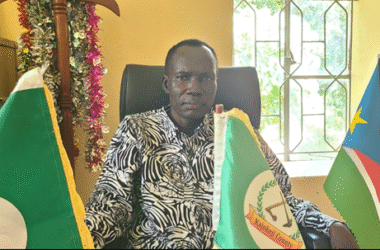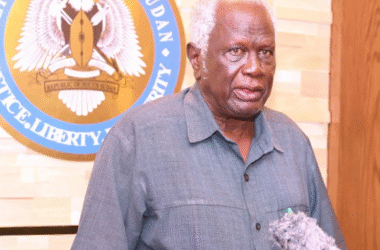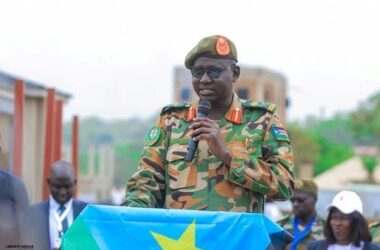By William Madouk
A lack of modern mining facilities, along with illicit mining and smuggling, has deprived South Sudan of significant gold revenue, according to the Minister of Mining, Martin Gama Abucha.
Mr. Abucha stated that the lack of cooperation among neighbouring states, where resource exploitation and smuggling occur, exacerbates actions and often leads to conflict.
“We have experienced informal cross-border trade, mainly for gold, with our neighbouring countries of DRC, Uganda, Kenya, Ethiopia, and Sudan,” he said in his opening remark at the International Conference of the Great Lakes Region (ICGLR) forum.
“And it has proven challenging to control because gold production is mainly from artisanal and small-scale mining situated in remote areas along the borders with our neighbouring countries,” he added.
Abucha cited that South Sudan has proven to produce over 30 tons of gold yearly from artisanal and small-scale miners alone. However, he added “this all goes through channels that we are not able to control.”
“South Sudan as a country has not yet benefited from its mineral resources, because we do not have any modern mining yet,” he added.
“But the gold production from artisanal and small-scale mining is mainly being smuggled through our porous borders with neighbouring countries to evade taxes and to look for better prices,” the Minister said.
He appealed for regional efforts to overcome illicit mining and formalize the artisanal mining sector.
“I’m very glad that we shall be able to discuss this in these sessions to come, how do we collaborate and control such minerals that should be for the benefit of the people and the country getting out without notice,” he said.
“And this is where the issue of traceability that we also have to discuss the issue of certification to ensure that even our buyers recognize our certificates and don’t buy from smugglers,” he added.
He said his docket is establishing the minerals trading centres, mining authority and a corporation to spearhead value-addition efforts, streamline mineral trading and enforce regulations.
“Yesterday, (Tuesday) I issued a ministerial order establishing the national minerals trading company to support the government’s effort to maximize the benefit for the people of South Sudan,”
In his part, Sudanese Minister of Minerals Mr. Mohamed Basher Abdalla decried natural resources falling into the hands of outlawed armed groups to finance their terrorist activities.
He urged regional the ICGLR, to fulfil its mission of attaining political stability, economic growth and natural resources management in the Great Lakes region for the benefit of its citizens.
European Union Ambassador to South Sudan, Timo Olkkonen stated that “as EU we firmly believe that a harmonized regional approach is crucial to the potential of Great Lakes region which inbounds in mineral resources.”
He urged the Great Lakes region member states to address the root causes of insecurity, instability and illegal exploitation of minerals resources.
“It is self-evidence that the countries and the people are not reaping the benefit due to them from minerals which in many cases are smuggled and in some cases fuel conflict,” Olkkonen added.
ICGLR is an inter-governmental body that brings together 11 countries in an attempt to bring about sustainable peace, security and development.
It was founded in the 1990s at the time of conflicts in DRC and the 1994 Rwanda genocide. Its members are Burundi, the Central African Republic, Republic of Congo, DRC, Kenya Uganda, Rwanda, Sudan, Tanzania, Zambia, Angola and South Sudan.
In October last year, ministers from the Great Lakes region met in Nairobi to draft a plan to combat the illicit trade in minerals. Part of the strategy included plans to harmonize laws, formalize the mineral sector, increase transparency and create a database to trace the origin of minerals.




